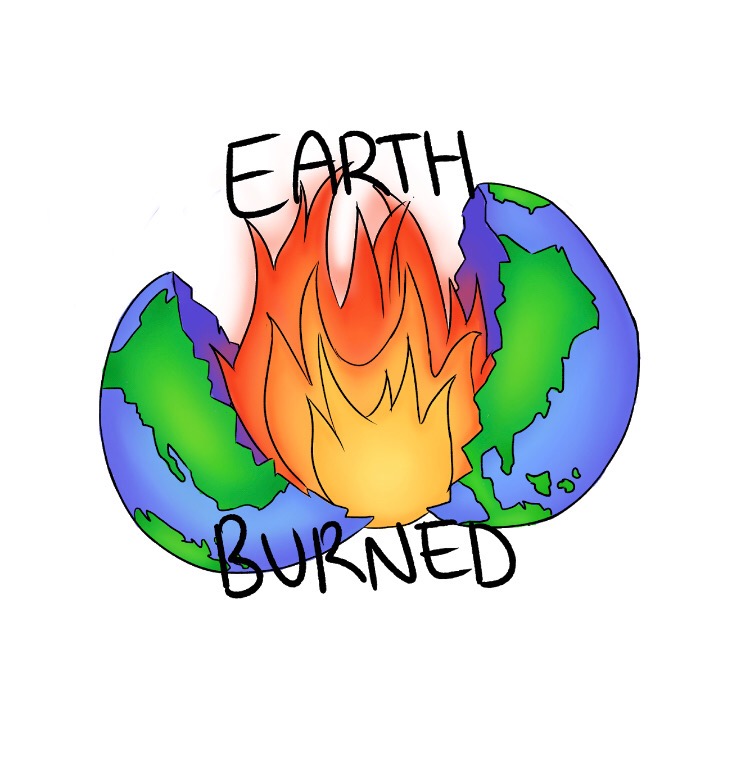Activism Alliance Fundraiser- Let's Talk About the Climate Crisis
- Earth Burned
- Dec 26, 2020
- 3 min read
Let’s Talk About The Climate Crisis
Written by Amy Park on November 4, 2020
Read the following blog to learn more about what the Earth’s climate is going through, why the climate is acting this way, and what you can do to help your Earth.
What’s happening? Why?
Right now, our Earth is going through a climate crisis, whether you believe it or not. Us humans are releasing billions and billions of tons of carbon dioxide into the air annually and these kinds of harmful activities have reached record highs. We’re not reducing these emissions at all, unfortunately. The main point is greenhouse gases. And these gases are mainly produced by human activities; they include carbon dioxide, methane, and nitrous oxide. Well, where do they come from? The most common example is deforestation---cutting down trees. As most people know, trees and plants overall are very beneficial to us as they absorb carbon dioxide and give us oxygen, so if thousands of trees are cut down, the carbon dioxide in our atmosphere will increase, resulting in a worse climate.
The Earth is getting hotter and hotter by the day, and it has reached the point where scientists now warn us that this is “an unacceptable risk.” Our global temperature has increased at least 2 degrees Fahrenheit since 1880. It may grow to “above three degrees Celsius [above preindustrial levels] by 2100.” if we do not start reducing our carbon emissions.
Why should I care?
A few degrees increasing doesn’t sound too bad to you at first, but the ecosystem around you will feel a huge impact, which will ultimately affect you. If the world temperature begins to increase nonstop, glaciers in the world’s colder parts will start to melt and cause landslides as the permafrost that usually holds them together will melt. All this melting can lead to one final point: rising sea levels. Now, the fact of rising sea levels is the point when humans are involved. As these sea levels rise, 10% of the world’s population will become displaced: the Maldives will be completely submerged underwater, and the Indian subcontinent will be fighting for their lives, trying to stay above water. Rising sea levels won’t be the only problem occurring. These increasing temperatures will cause many people to die as the expanding heat will become too much for them. People living in Asia, Australia, and the south-eastern part of the US will experience very strong hurricanes, ultimately causing huge destruction and many people to be displaced.
What can I do to help?
One of the best ways you can improve the climate crisis is by tweaking your lifestyle. Think about that one project you might have done in middle school about logging your carbon footprint. Do you remember how much carbon dioxide you use per day? Try out the carbon footprint now and see how much carbon dioxide you use. If you see that your carbon footprint is very large, which means that you use a huge amount of carbon dioxide, then try to turn to more energy-saving techniques, a more climate-stable diet, and/or change how much you commute.
Let’s look at a few more specific examples of these choices:
Energy-saving techniques
Unplugging electronics when you’re not using them
Hang drying your clothes
Buying appliances that have the Energy Star label
Climate-stable diet
Eating less meat (not no meat at all, but just reduction)
Growing your own food
Try not to waste as much food
Changing your commute style
Instead of using the car, maybe bike to your locations
Public transportation
Try to share the car with other people
Additionally, let’s say that you have a small carbon footprint already. What else could you do? You can start sharing your voice, beginning conversations about the climate, and try to bring change. Your voice can be very valuable, or you can help outside organizations who are fighting against climate change: EPA, NOAA Education, IPCC, and NCAR are a few among them.
Let’s bring change to this Earth for ourselves and for our future generations.

References









Comments